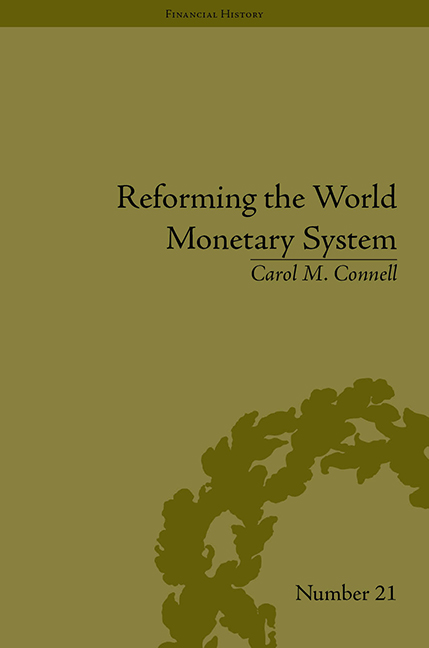Book contents
- Frontmatter
- Contents
- Acknowledgements
- List of Figures and Tables
- Introduction
- 1 A Crisis in Confidence
- 2 Fritz Machlup, his Research and Methodology
- 3 Robert Triffin and the Triffin Plan
- 4 William Fellner and the Intersection of Macro and Microeconomics
- 5 Why Economists Disagree: The Role of Framing in Consensus Building
- 6 ‘Assuring the Free World's Liquidity’ through Multiple Reserve Currencies
- 7 Milton Friedman and the Arguments for Flexible versus Fixed Exchange Rates
- 8 Collaboration with the Group of Ten
- 9 Adjustment Policies and Special Drawing Rights: Joint Meetings of Officials and Academics
- 10 From the Bellagio Group to the Bürgenstock Conferences
- 11 From the Bellagio Group and Joint Conferences of Officials and Academics to the Group of Thirty
- 12 Reassessing the Bellagio Group's Impact on International Monetary Reform
- 13 The Impact of the Bellagio Group on International Trade and Finance Scholarship from the 1960s to the Present
- Conclusions
- Notes
- Works Cited
- Index
4 - William Fellner and the Intersection of Macro and Microeconomics
- Frontmatter
- Contents
- Acknowledgements
- List of Figures and Tables
- Introduction
- 1 A Crisis in Confidence
- 2 Fritz Machlup, his Research and Methodology
- 3 Robert Triffin and the Triffin Plan
- 4 William Fellner and the Intersection of Macro and Microeconomics
- 5 Why Economists Disagree: The Role of Framing in Consensus Building
- 6 ‘Assuring the Free World's Liquidity’ through Multiple Reserve Currencies
- 7 Milton Friedman and the Arguments for Flexible versus Fixed Exchange Rates
- 8 Collaboration with the Group of Ten
- 9 Adjustment Policies and Special Drawing Rights: Joint Meetings of Officials and Academics
- 10 From the Bellagio Group to the Bürgenstock Conferences
- 11 From the Bellagio Group and Joint Conferences of Officials and Academics to the Group of Thirty
- 12 Reassessing the Bellagio Group's Impact on International Monetary Reform
- 13 The Impact of the Bellagio Group on International Trade and Finance Scholarship from the 1960s to the Present
- Conclusions
- Notes
- Works Cited
- Index
Summary
Born in Budapest in 1905, William John Fellner was a colleague of Robert Triffin and like Triffin a mutual friend of John and Marina von Neumann. Marina von Neumann would later recommend Fellner to a seat on the US President's Council of Economic Advisers. Like Fritz Machlup, Fellner inherited a family business and in the same industry: paper. Like Machlup, he was a cartel director. Both Machlup and Fellner were Jewish (although Fellner was raised as a Lutheran). The archives reveal that the Machlup's firm in Austria had been confiscated by the Nazis. The Nazis would reach out to Machlup while he was in Buffalo, his first US assignment, requiring a full accounting of his assets. There is nothing in the published work of Machlup or Fellner to suggest how they felt about this period. Nevertheless, the archives are full of letters Machlup sent to get family members and friends out of Austria. The Fellner letters at the Hoover Institution (other than the letters exchanged with Machlup and Triffin) have not been foldered, so it remains to be seen whether he found himself playing a similar role for family and friends in Hungary.
Fellner earned his doctorate in economics from the University of Berlin in 1929, joined the faculty of the University of California, Berkeley in 1939, and became a US citizen in 1944. Fellner left Berkeley for Yale University, becoming a professor of economics there in 1952 and retiring in 1973. In 1970, he began his association with the American Enterprise Institute as an Adjunct Scholar.
- Type
- Chapter
- Information
- Reforming the World Monetary SystemFritz Machlup and the Bellagio Group, pp. 51 - 62Publisher: Pickering & ChattoFirst published in: 2014



